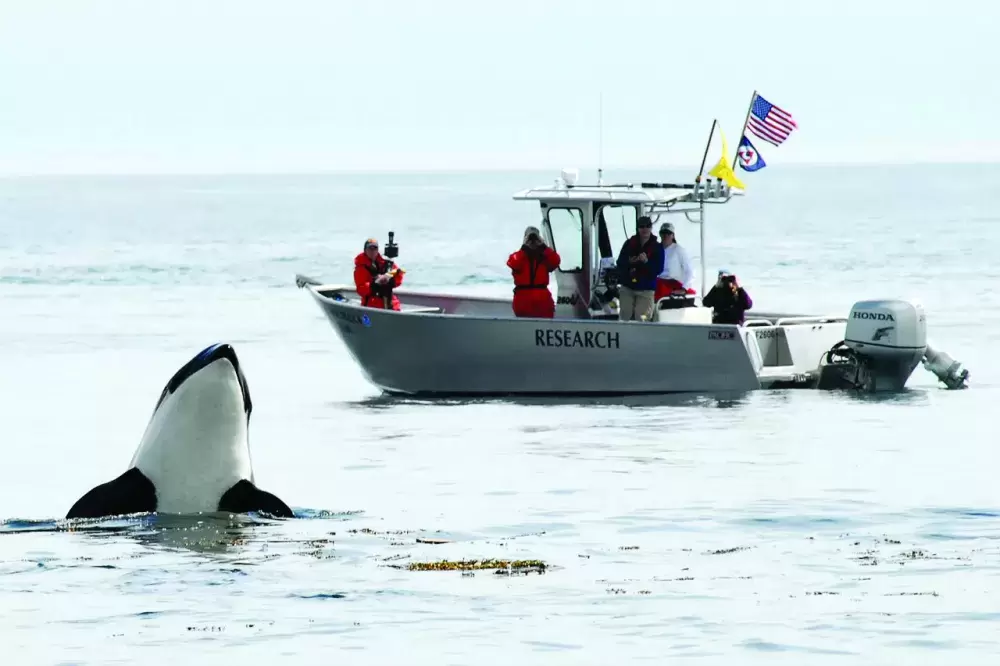There are growing concerns that more drastic measures to conserve orcas could take a big bite out of Indigenous, commercial and recreational fishing on the Island’s west coast.
Courtenay-Alberni MP Gord Johns has asked for an extension in consultations over orca habitat protections, relaying to the federal minister that the process was ill-timed for the fishing sector.
Johns’ request comes as the Canadian government enacts tougher conservation measures in a continued effort to prevent further declines of certain whale populations on Canada’s east and west coasts. Those measures may well include fishing closures of productive banks off the Island’s west coast.
"Conducting consultative processes that impact fisheries in the midst of the fishing season is being viewed with suspicion and mistrust that the government either places a low value on input from the stakeholders or has already decided the outcome and is checking boxes on a list of consultation requirements,” Johns wrote to federal Fisheries Minister Dominic Leblanc.
“Those who are dependent on the commercial, sport or Indigenous fisheries are simply not able to effectively respond to the government’s external review in the middle of the fishing season,” the MP wrote.
Restrictions governing whale watching took effect July 11 as part of an evolving recovery strategy for southern resident orcas. In B.C. waters, fishing has been restricted to protect stocks of chinook and chum salmon, important food sources for declining southern resident orcas, which are called kakawin in Nuu-chah-nulth.
Habitat restrictions are planned as well, although the Department of Fisheries and Oceans has stated that any new regulations will not be imposed in 2018. The habitat protection review provided a 30-day window for public comment on proposed designations that could result in additional closures of salmon fisheries. A deadline for comments expired July 11.
Swiftsure and La Pérouse banks, rich west coast fishing waters, have been identified as critical to the recovery of the endangered population of southern resident orcas. Possible fishing closures could have harsh consequences for local economies, Johns told the fisheries minister.
A recovery strategy for the whales was launched in 2001 to counter a slow decline. In recent years the population tumbled by one-third from a high of 98 in 1995 to 75 at last count. In response, additional action was promised in Ottawa’s Oceans Protection Plan in 2016.
Whale watching operations, which west coast communities rely upon as a tourism draw, say they’re not worried by the new rules, which include a doubling of the minimal viewing distance to 200 metres.
Corene Inouye, general manager of Jamie’s Whaling Station, said companies have already charted a course for responsible whale and wildlife viewing over the past several decades.
“We are very proactive and support ongoing conservation efforts, including collectively donating millions to research, rescue and education,” Inouye, president of the Pacific Rim Tour Operators Association, wrote in an email.
There are, however, concerns about the need for education and greater awareness among other vessel operators, she added. A few weeks ago, a fish farm vessel plowed right through a group of transient orcas, an incident reported to DFO.
“This was after being hailed on the radio by many operators, advising that there were orcas directly in front of them,” she noted. “They had plenty of time and space to alter their course but failed to do so.”
Fishing was restricted from June 1 to Sept. 30 in areas around Sooke, Port Renfrew and in the southern Gulf Islands, a serious blow to local fishing and tourism. Those closures are supposed to reduce the chinook catch by 25 to 35 percent, although the southern resident orca decline is felt to be the result of multiple factors, not limited to chinook.
At a symposium held by DFO last fall, First Nations made it clear they prefer more emphasis on rebuilding chinook stocks and habitat restoration than on fishing closures. They also expressed a willingness to work with government on orca conservation measures.
Wellbeing of whales — especially humpback whales, grey whales and orcas — has been integral to Nuu-chah-nulth culture and belief systems for millennia. Those species, along with salmon, provided not only the nutritional sustenance but the economic foundation of west coast peoples.







